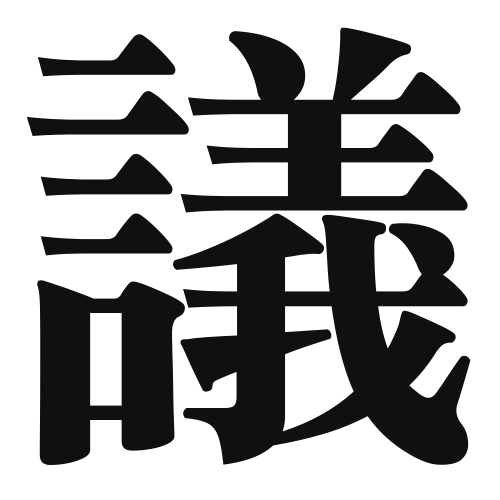1. Overview of Meaning
The kanji 議 (gi) means “discussion,” “debate,” or “deliberation.” It is often used in contexts related to decision-making and formal discussions.
2. Formation and Radical
Formation of the Kanji: The kanji 議 is a compound character, which means it is formed by combining two elements. It consists of the phonetic component ギ (gi) and the semantic component 言 (gen), which relates to speech or words. This indicates that the character is associated with verbal communication and discussion.
Radical: The radical of 議 is 言 (gen), which is commonly associated with words, speech, and language.
3. Examples of Usage
Common Words and Phrases: Some frequently used words that include 議 are:
- 議論 (giron) – discussion, debate
- 議会 (gikai) – assembly, council
- 議題 (gidai) – agenda, topic of discussion
Example Sentences in Daily Conversation:
- 私たちはその問題について議論する必要があります。
(We need to discuss that issue.) - 議会は新しい法律を可決しました。
(The assembly passed a new law.)
4. Synonyms and Antonyms
Similar Kanji: A kanji with a similar meaning is 討 (tou), which means “to discuss” or “to debate,” but it often implies a more confrontational or argumentative context.
Opposite Kanji: An antonym could be 沈黙 (chinmoku), meaning “silence,” which represents the absence of discussion or communication.
5. Cultural and Historical Background
Relation to Japanese Culture: The concept of 議 is significant in Japanese culture, especially in formal settings such as government and business, where discussions and deliberations are crucial for decision-making.
Proverbs and Idioms: One relevant proverb is 議論百出 (giron hyakushutsu), which means “a hundred opinions arise in discussion,” highlighting the idea that discussions can lead to many different viewpoints.
